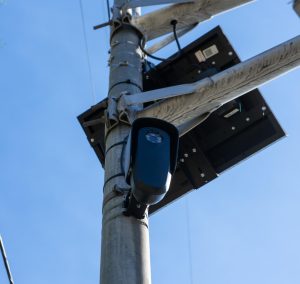Overcoming the Bookstore Blues
February 16, 2019
As I bought textbooks and paid fees for my final semester at Whitman, it became clear that for one of the first times in my college career my book bill will be less than 300 dollars. But before I perform a happy-dance in the middle of the Whitman College Bookstore, I really need to ask myself how much cause I have for celebration.
According to the College Board, the average college student in the US will pay $1200 for required textbooks and supplies during the 2018-2019 school year, a cost of $600 per semester. Furthermore, despite the increasing availability of used textbooks and rental options, this cost has risen nearly four times the rate of inflation over the past ten years, causing nearly two-thirds of students skip buying required texts at some point in their college career.
So what is happening and why are some class schedules, like mine, a little more manageable than average? More importantly, what can be done to improve the situation?
A 2018 CBS report identifies–let’s hear a collective groan–access codes as the “main culprit” in rising costs for students. These codes enable students to use online content and complete class assignments (e.g. Mastering Chemistry). But most access codes expire once they have been used for one semester. When book publishers “bundle” a textbook and access code together, students’ textbooks become nearly worthless on the used market. About 40% of college courses across the US use access codes. At Whitman, most of these courses are in the sciences–physics, chemistry, biology–placing a particular burden on students in these majors.
However, textbooks and required readings are expensive for all students. Professors request that we buy the same edition of texts, oftentimes the most recent, so that students can be (literally) on the same page. Resale values of most books are a fraction of the original cost in the bookstore and online. And in some classes without textbooks, class fees increase students’ out-of-pocket expenses.
So what to do? Much of the power in the textbook debacle is in the hands of professors and departments because they choose the texts for their courses. A 2016 New York Times article points to a movement of professors removing online access-code content from their curriculums and turning to open source options. As a math major, I personally am so grateful to members of the math department, who actively use low cost printable textbooks (in statistics) select older, cheaper editions (in linear algebra), and even write online open-source textbooks for anyone to access (Professor Guichard wrote Calculus, and Professors Keef and Guichard wrote editions of Introduction to Higher Mathematics). If they had simply chosen the newest hardcover textbooks, I could have spend nearly a thousand dollars more.
Across the Whitman campus, there are faculty members who actively make an effort to make textbooks affordable. Students can encourage this movement. Thank these professors. Ask other professors about alternatives. Support the strategic plan proposal to eliminate course fees, which contribute to rising costs.
The truth of the matter is that college is expensive, and getting more so. A year and a half ago, Whitman pledged to increase “access and affordability,” a commitment which includes tackling cost barriers from our tuition to room and board, course fees, and textbooks. In several ways we are on the right track. So let’s keep this moving forward so that we have some more reason to start celebrating in the bookstore.







joe • Feb 18, 2019 at 12:51 pm
“$1200 for required textbooks and supplies”. What do they consider as “supplies”?
More schools have adopted inclusive access, offer more low cost digital product, OER, or rental titles. The National Association of College Stores has reported a fluctuation in the cost of textbooks/course materials (without the elusive “supplies”) each year, with the most recent number being less than $500 annually.
A quick Google search found the College Board value was reported going back to 2014, and possibly earlier. How has this value not dropped over the past 4 years, yet other reports on spending have the number far less than half?